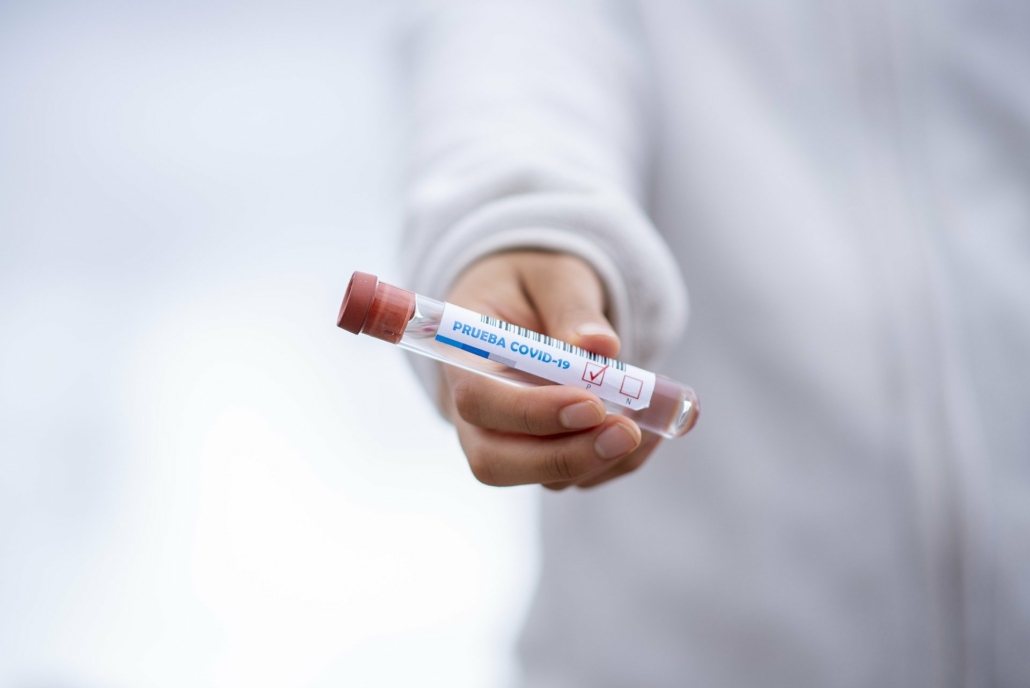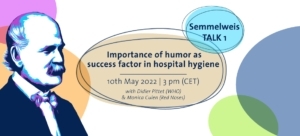The Covid-19 pandemic has exposed weaknesses and gaps in healthcare systems around the world. For example, bottlenecks in critical supplies, a lack of investment in public health infrastructure and a lack of coordination between policymakers, authorities and health care executives, which have led to an overloading of health systems and a rapid growth of the death rate.
The rapid spread of Covid-19 has taught us the need for a globalization of scientific, medical and public health efforts based on common goals and broad collaboration. As health systems around the world unite, it will be easier to quickly identify and disseminate the best approaches to prevention, containment, mitigation and treatment.
Antibiotics play a major role in social and medical development. The success of modern medicine would not have been possible without effective antibiotic treatment to fight bacterial infections. At the same time, AMR has emerged as one of the major public health problems of the 21st century and can affect all of us.
The measures that have proven to be most effective in the fight against Covid-19 should also be used to treat other serious illnesses. An increasing number of infections from bacteria, parasites, fungi and viruses are no longer susceptible to the usual antimicrobial treatments. Based on estimates, the number of deaths from antimicrobial resistant infections is expected to rise from the current 700,000 to 10 million per year by 2050.
AMR develops across the triangle of animals, humans and the environment and pathogens are linked in this triad. Its consequences affect the world. The WHO has identified antibiotic resistance as one of the most critical health threats for the years to come and strongly recommends the implementation of national action plans. Global efforts to combat antibiotic resistance should include the following strategic goals:
- Increasing awareness and understanding of antibiotic resistance
- Strengthening knowledge through monitoring and research
- Reducing the incidence of infections
- Optimizing the use of antimicrobial agents
- Economic case for sustainable investments in new drugs, diagnostic tools and vaccines
The global nature of AMR requires a global response, both geographically and in all sectors involved. As we know too well because of Covid-19, education and change of behavior play a critical role in public health. The current pandemic shows that, despite all medical advances, we are highly susceptible to infections.
Covid-19 has radically changed the way we look at human health. As with Covid-19, the world is also not prepared for antibiotic resistance (AMR). The pandemic provides an opportunity to explore how we can respond to the growing AMR threat. Through this learning experience, we hope that the global response to the Covid-19 pandemic provides the perfect opportunity to empower health systems to both combat the current pandemic and limit the spread of AMR in the long term.
The world’s attention is rightly focused on Covid-19 right now. But there is also a moral need to be prepared for the growing threat of antibiotic resistance (AMR) and the challenges it poses. We must use the lessons learned to enable our health systems, social and economic policies and global institutions to respond better.
This includes strengthening health systems by investing in expanded hospital capacity for patients, ensuring adequate antimicrobial training for staff, ensuring adequate antimicrobial supplies for patients, and investing in clean water, sanitation and hygiene to prevent infections both at home and in the hospital.
The pandemic has had enormous consequences for all health systems. Governments and healthcare providers have been and are still forced to make difficult decisions about prioritizing health care. Similar issues of priority shifting and resource scarcity will arise as the pressures of AMR on health systems increase.
A comprehensive AMR approach that adequately takes into account the biological and social impact of AMR should include fair and gender-sensitive access to health care, increased protection of workers and alternative arrangements for child and elderly care. This may include greater employer support for flexible working arrangements and increased social safety nets to support healthcare professionals who also have to take care of family members.
What did this outbreak teach us and what lessons are worth to be implemented in the future?
The global impact of AMR requires a coherent response and collective action from individuals, businesses, civil society actors and governments. Covid-19 has shown that international cooperation can be felt worldwide and how important and crucial solidarity is in the fight against the spread of resistant pathogens. Based on this experience, the opportunity for an effective coordinated response to AMR in different sectors should be seized.
Hand washing is still the first line of defense against viruses like coronavirus. Fear of contracting Covid-19 has made a significant contribution to maintaining personal hygiene. Practicing adequate hygiene measures in hospitals, schools, and other public places, as well as universal safety precautions like washing hands, covering your nose and mouth when coughing and sneezing, using disinfectants, avoiding fingers coming into contact with your mouth, nose, and eyes, and physical distancing have decreased the spread drastically. In addition, efforts are being made in many countries to demonstrate suitable hand washing techniques.
Almost every country is trying its best to keep the disease at bay, to avoid panic and misinformation, and to improve transparency between government agencies and the public. This pandemic has clearly shown the strengths and weaknesses of health systems and how important it is to be well prepared by controlling infection and counteracting a shortage of doctors.
We will only win the fight against resistant microbes if we work together across borders, learn from one another and adapt systems. At this year’s Semmelweis Digital Conference we will talk about the current situation of antibiotic policy in Central Eastern European countries, the teaching experience due to Covid-19 and best practice models to prevent a growth in antibiotic resistance.
The Austrian Ministry of Health supports the initiative of the Semmelweis Foundation and promotes cooperation between all CEE countries by presenting and evaluating their national plans for the administration of antimicrobial agents in a supplementary journal of the Wiener Medizinische Wochenschrift: „Antimicrobial Stewardship in Central Eastern European Countries“
With this publication, the Semmelweis Foundation pays tribute to the Austro-Hungarian doctor Prof. Dr. Ignaz Semmelweis, who laid the foundation for hand disinfection and infection prevention.

source directory
Global Alliance for Infections in Surgery
Federal Ministry of Social Affairs, Health, Care and Consumer Protection




